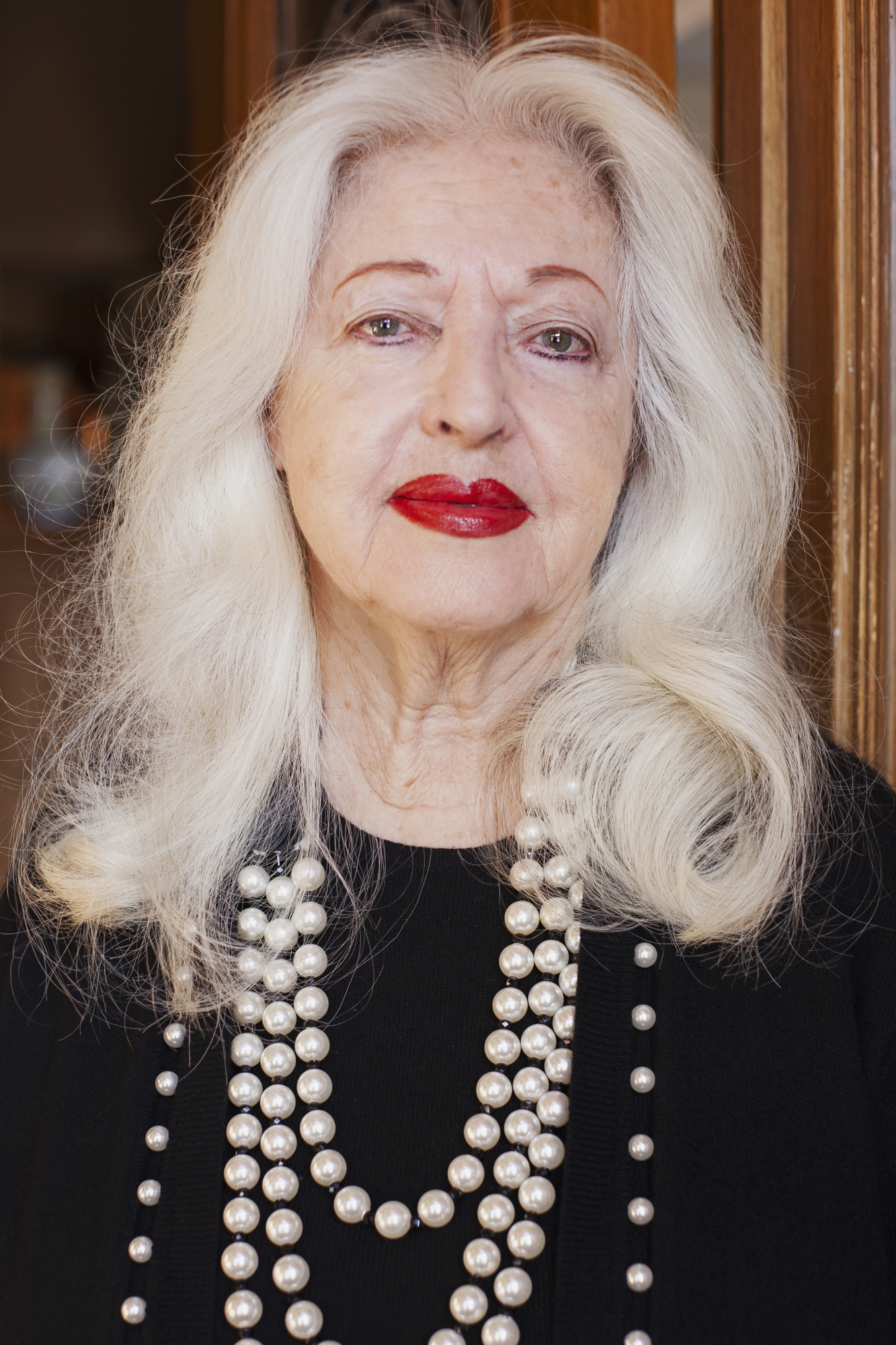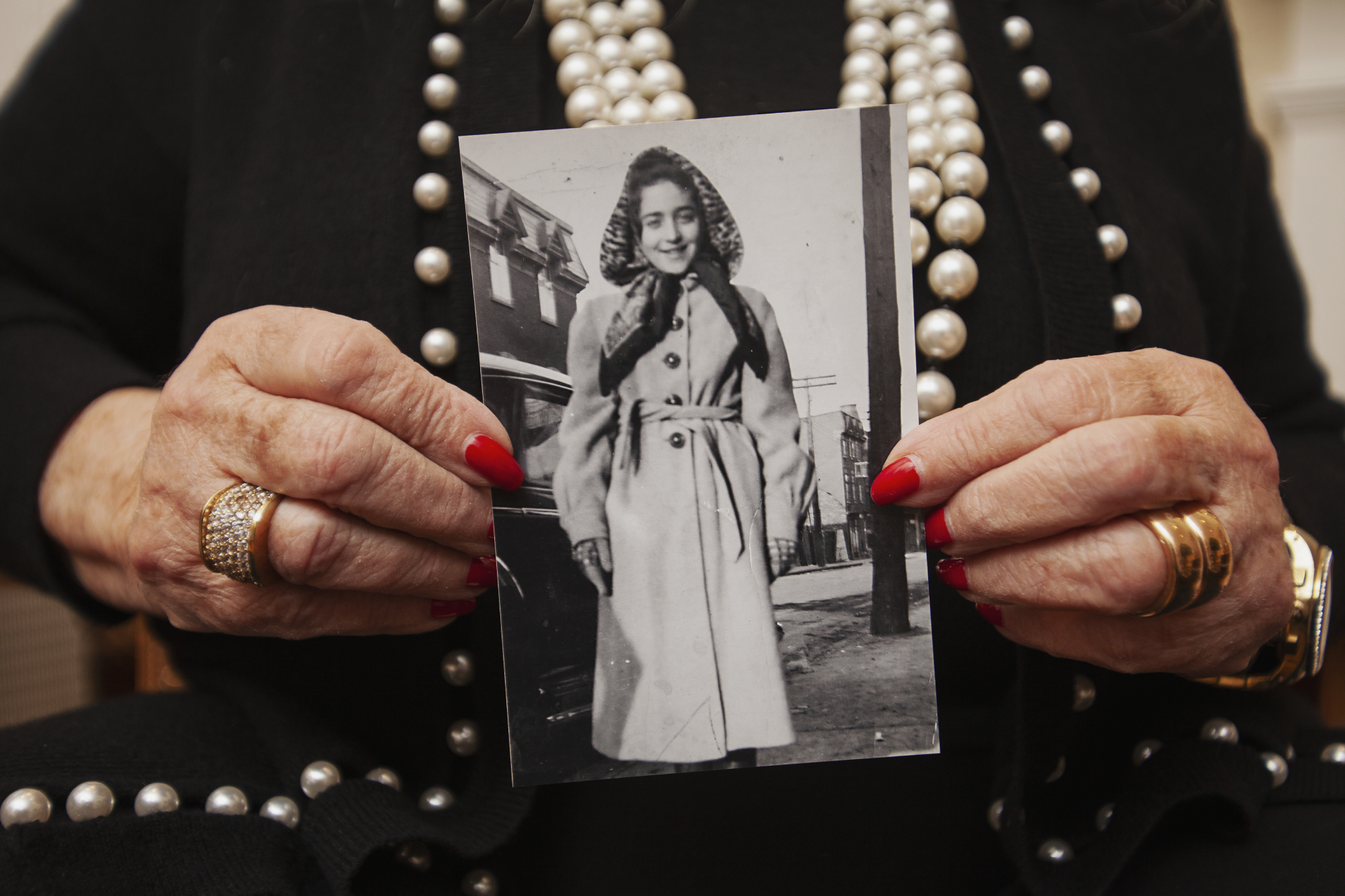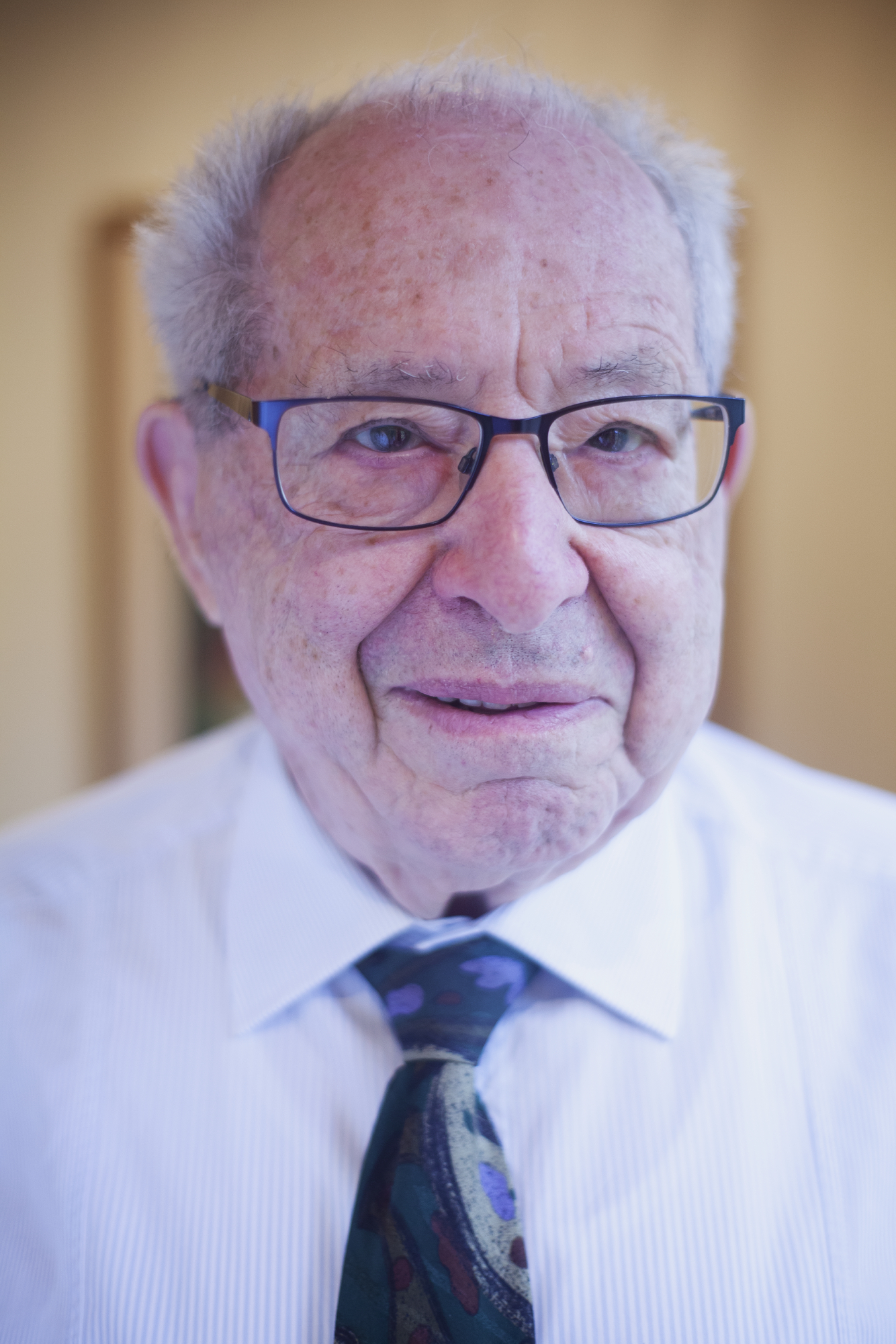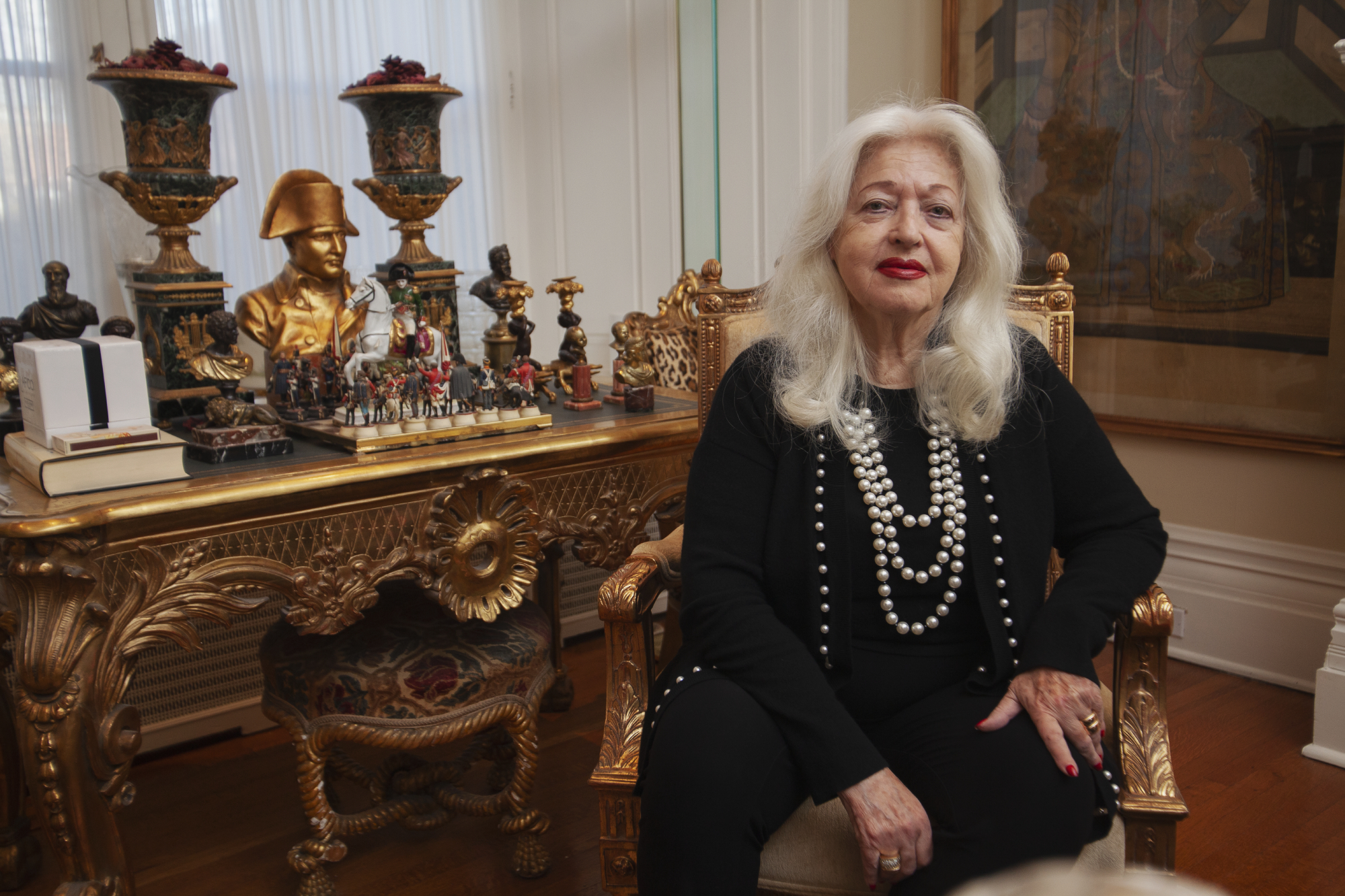
Dana Bell
Portrait in green coat
Dana Bell was just one year old when her parents left Poland in 1940. Risking their lives, they fled to Russia, Uzbekistan, and then to Austria. Eight years later, the family moved to Montreal, thanks to an immigration program for furriers. Upon their arrival, the Jewish Immigrant Aid Society (JIAS) provided them with the clothing they needed to make it through their first winter. Dana fell in love with a pretty green coat with leopard-print lining. The following photograph was taken in front of their rental apartment on Saint-Lawrence Boulevard. A young Dana is pictured wearing the coat with evident pride.

Listen to the photograph's story
When we first came to Canada, we didn’t have proper clothes – it was November, cold. As a matter of
fact, my mother said: “They sent us from Siberia to Siberia.” Which is true, by the way, we have the
same weather because I am in touch with a girl in Siberia, where we were in the labour camp. So, we
had no clothes, so this was the JIAS, they gave all the immigrants clothes. So, we went to get clothes and
I saw this coat. It was a green coat with a leopard lining in the hood – oh my God, I love leopard until
today! – and you know, I got leopard, a scarf, gloves, boots. I said when they interviewed me for JIAS, I
said to them: “I went in an immigrant, I came out a Canadian.”
Who took this picture?
I don’t remember. It must have been my father. I don’t know who else, maybe an uncle or something. I
don’t know.
Do you know where this was taken?
Yes. It’s on Saint-Lawrence where we were living. That would be December 1948. Because it took a little
while ‘till they organized you. They also used to send us parcels for the holidays, the JIAS, like for
Passover the matzah. It was so exciting to get a box of everything! So, for Passover and for Rosh
Hashanah they sent, you know, like they do now. We had no money. They gave us 10 dollars off the
boat, the government. They didn’t give us housing, nothing. It was the JIAS or some Jewish agency that
gave us a room with these people. It was very hard at the beginning. My parents found it very hard. I
found it hard because I couldn’t go to school; my parents went to work, I had to stay with my baby
sister. When she was about a year old, no she was two, first I went to the Volksschule (Jewish public
school) and there the kids, they were mean to me. They used to make fun because I wore the white bow
in my hair. So my mother said: “You have suffered enough, you don’t need to go to a Jewish school,
where they are going to make you miserable.” So she put me into the Jewish Peretz school. The principle
was an immigrant. So he right away, you know, understood the situation and my mother told him, she
said: “I don’t know what to do. I want her to go to school but we have this little girl, she is two years
old.” He said: “She will bring her to school.” And I would be in class, she would sit in the back with
crayons and cookies and milk. They were a great school, they were really… And he took me from one
room to the other and he said: “If I hear anyone giving this child a problem, you will have to deal with
me.” So, you know, it was such a different atmosphere from the Volksschule to the Peretz school.
Incredible! Because most of the teachers there also were immigrants. Not immigrants from the
Holocaust but immigrants that they came from Poland or wherever. So, they were more empathetic to
our situation. They went through it themselves.


